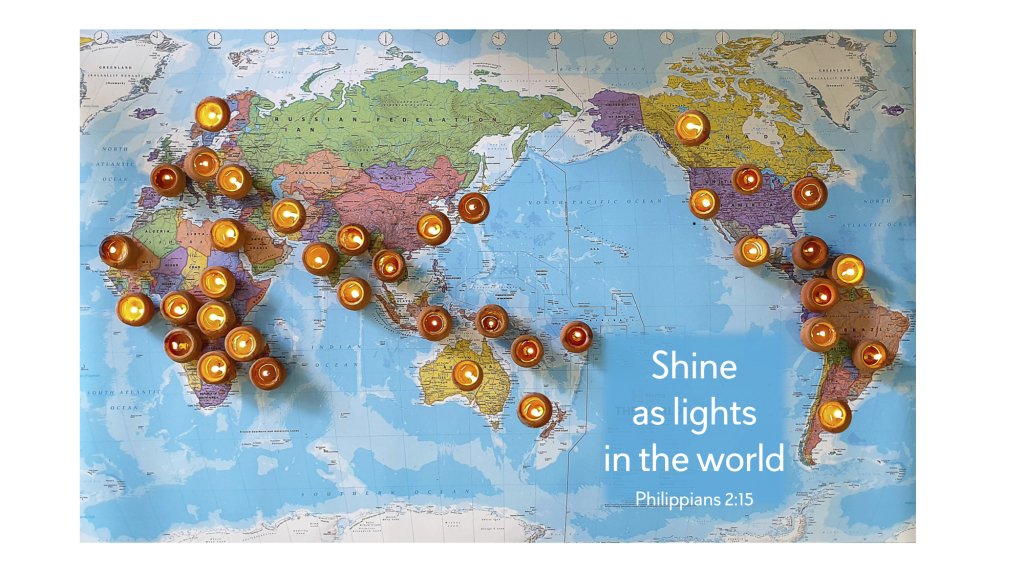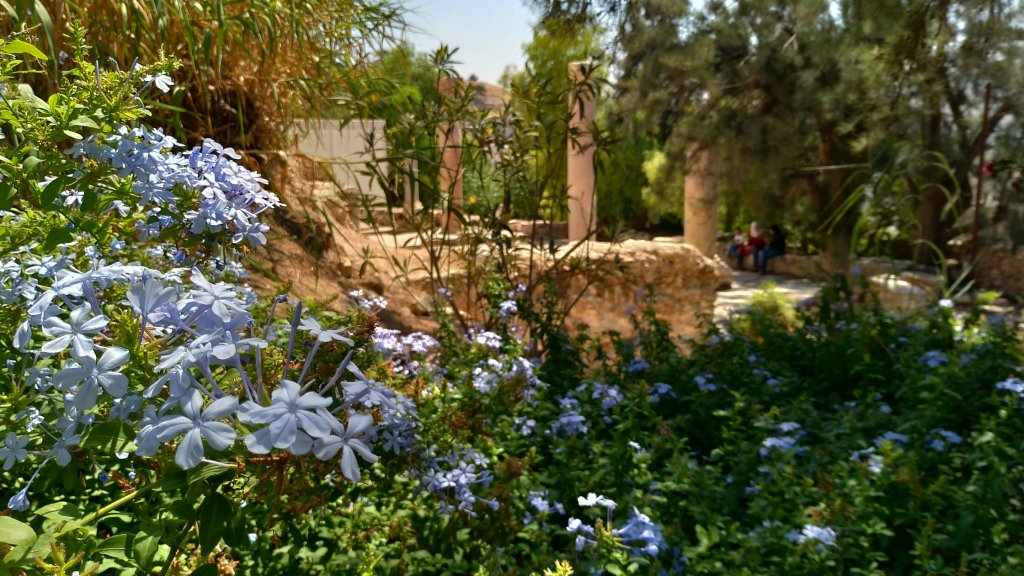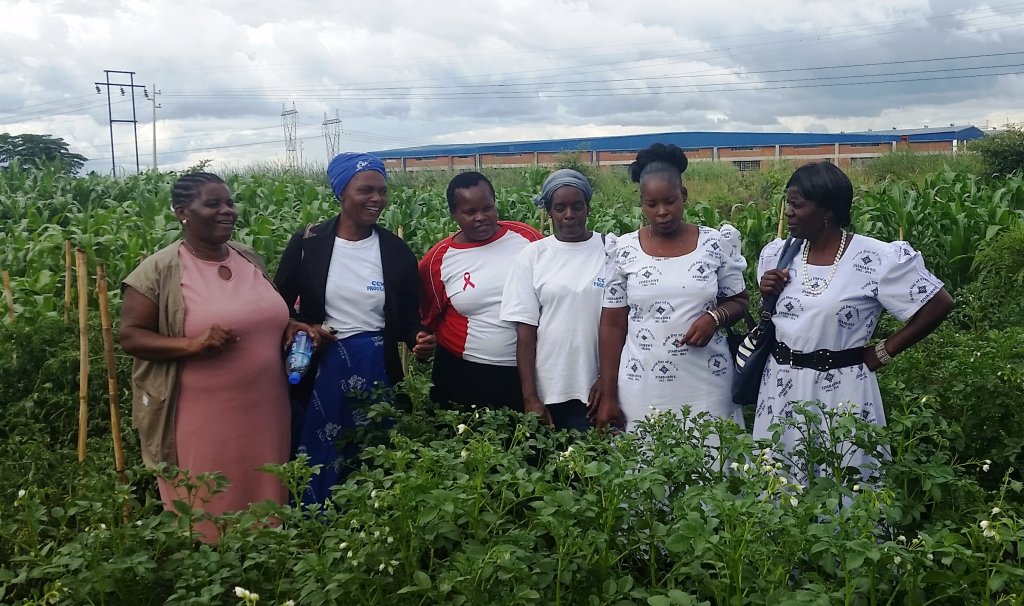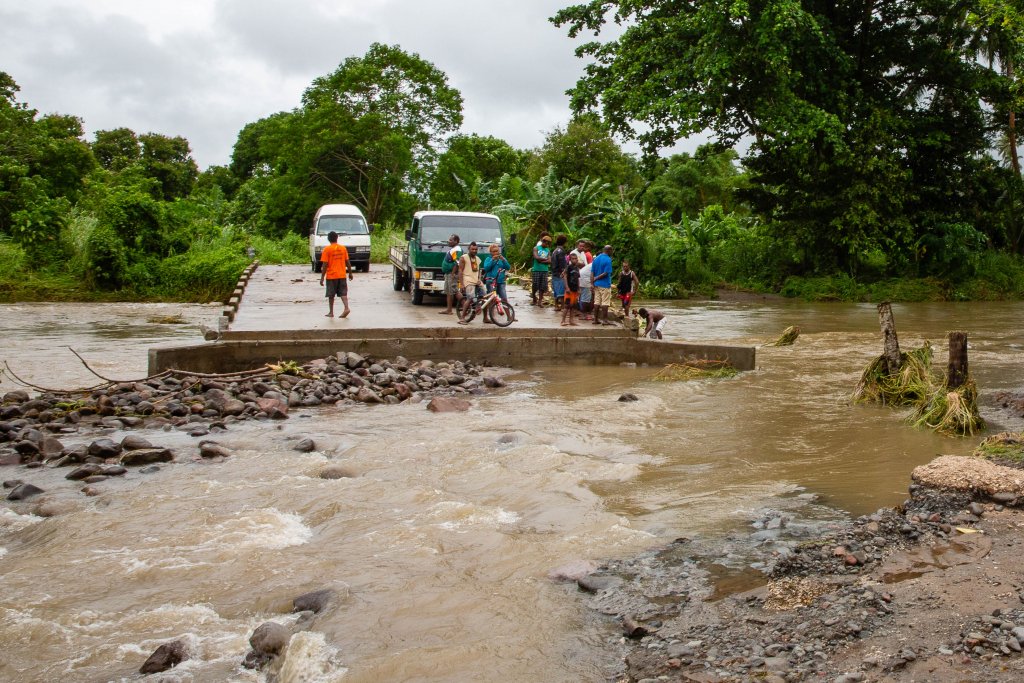In this time between Ascension Day and Pentecost, the Archbishop of Canterbury has invited Christians across the world to join the initiative called ‘Thy Kingdom Come’. We are encouraged to pray especially for five friends, family and neighbours to encounter the love of God in Christ. We are also called to pray for the empowerment of the Holy Spirit in our lives so we can witness fully to our faith.
This year we pray in the context of the COVID-19 pandemic and all its related suffering and anxiety around the world. So, in Thy Kingdom Come 2020, we are encouraged to both focus on both prayer and care, that all might also experience the love of God in action. This is the blessing of hope through the Holy Spirit moving amongst us, inspiring us to respond in loving care and prayer for God’s kingdom to come on earth.
It has been a gift to read the contributions from my Anglican Alliance colleagues around the Communion as they reflect on the question: What do I hope for when I pray Thy Kingdom Come? In our first group of reflections, published on Ascension Day, we heard the hopes and prayers of various staff members: for all people to experience life in all its fullness; for the most marginalised, including migrants, refugees and people who are trafficked, to be treated with dignity and regarded with the intrinsic value which Jesus emphasised by placing them at the heart of God’s kingdom; for us to recognise the abundant gifts God has already given us and to live in harmony with each other and all creation.
Today, in the second set of reflections from the Anglican Alliance staff, we read about their prayers:
- for justice and peace through the restoration of relationships, written by Joel Kelling, the Anglican Alliance’s Middle East facilitator
- for communities to develop resilience and hope in the face of crises, written by Dr Janice Proud, the Anglican Alliance’s Disaster Response and Resilience Manager
- and for us to discern God’s will for humanity to embrace climate justice and allow the earth to heal itself, written by Tagolyn Kabekabe, the Anglican Alliance’s Pacific facilitator
All these hopes and prayers are placed within the context of the COVID-19 pandemic, exploring what it means for God’s kingdom to come on earth, in this time and place. Amidst the great suffering and anxiety created by the pandemic and by the measures taken to control it, the crisis has also caused the world to pause. This offers an opportunity to press the reset button, to reflect and reimagine our world and how God calls us to help bring about his kingdom of justice and peace.
One of the great privileges of working with the Anglican Alliance is that we hear daily examples of loving and prayerful action taken by churches across the Communion, even while observing social distancing guidelines in respective countries. We see people seeking the kingdom of God and living out their prayer ‘Thy Kingdom Come’ in action.
 The resources for Thy Kingdom Come 2020 invite Christians to light up the world in prayer: ‘Jesus Christ is the light of the world and we are called to be the light of the world as we bear His image.’ When I reflect on the words ‘Thy kingdom come, thy will be done on earth, as it is in heaven’, I often imagine a map of the world with points of light shining from people and places of hope and love. In the coming of Christ, God’s kingdom has begun on earth – we see the lights of hope across the world for the transformation that has already begun in Christ. In these days of prayer and action between Ascension Day and Pentecost and beyond, we pray that these points of light might spread and join in brilliant radiance, as a reflection of God’s heavenly kingdom here on earth. God is present with us, bringing blessings, inspiration and comfort in the midst of this time of fear and distress. Come, Holy Spirit, and dwell with us.
The resources for Thy Kingdom Come 2020 invite Christians to light up the world in prayer: ‘Jesus Christ is the light of the world and we are called to be the light of the world as we bear His image.’ When I reflect on the words ‘Thy kingdom come, thy will be done on earth, as it is in heaven’, I often imagine a map of the world with points of light shining from people and places of hope and love. In the coming of Christ, God’s kingdom has begun on earth – we see the lights of hope across the world for the transformation that has already begun in Christ. In these days of prayer and action between Ascension Day and Pentecost and beyond, we pray that these points of light might spread and join in brilliant radiance, as a reflection of God’s heavenly kingdom here on earth. God is present with us, bringing blessings, inspiration and comfort in the midst of this time of fear and distress. Come, Holy Spirit, and dwell with us.
Revd. Canon Rachel Carnegie, Executive Director of the Anglican Alliance
Joel Kelling, Anglican Alliance Middle East facilitator
Thy Kingdom Come

Wild flowers growing by the ruins of a Byzantine church in the middle of Amman. Photo: Joel Kelling
For me, the vision of God’s Kingdom manifest here on earth as it is in heaven is primarily shaped by the concept of restoration. Restoration of relationships between God and humanity, of relationships within humanity, and of relationships between humanity and the rest of God’s creation. God’s Kingdom becoming present looks like people turning away from personal desire for consumption and the self, and returning to God, returning to seeing God in all those made in God’s image and likeness. It looks like repentance and reconciliation.
In the Middle East the sense of damaged relationships is visible across the lands of the region. War continues to rage, even during this global pandemic of COVID-19, whether between ethnic groups or religious traditions. Yemen and Syria are torn apart by civil war, fought in part by proxies of a larger battle for hegemony in the region. Meanwhile unrest continues in Iraq and Lebanon and the Israeli-Palestinian conflict rumbles on with millions still displaced and little sense of safety within the land or beyond its borders. There is division too amongst some Christians in this region, whether internally in disputes between leaders and communities or between the diverse denominations represented here.
Here, I don’t see restoration simply as the signing of peace deals, or even the potentially equitable division of land between peoples. This to me represents the vision of Israel and Judah in the time of Solomon – living in safety with “each under their own vines and their own fig trees” (1 Kings 4:25). This would be a peace secured with strong borders, and each individual possessing their own space. Instead, the restoration I envisage is that seen by the Prophet Zechariah, where God will “remove the iniquity of this land in a single day. On that day…each of you will invite your neighbour to sit under your vine and under your fig tree.” (Zechariah 3: 9-10) This is a shared experience, not of cold peace but of brave relationship, warm friendship and restoration.
Across the region, people are living a long way from home, and a long way from family, whether by displacement because of war as refugees and asylum seekers, or in search of better economic opportunities as migrant workers. For me, restoration would not only see these workers treated with dignity and respect regardless of who they are and where they come from, but would also see them surrounded by their families, rather than separated for months or even years without being able to go home, missing deaths and births.
So much of the separation here is caused by the need to provide, and it comes at great cost. In God’s Kingdom, fully realised here on earth, that need to suffer in order to provide would be no more.
The land cries out for restoration, rivers are drying up, aquifers depleted, biodiversity is lost, and the extractive industries continue to pillage the earth. In my vision of God’s Kingdom Come, I am reminded of the passage in Ezekiel 47, where the water from the temple flows through the desert and into the Dead Sea, turning its saltwater fresh, and within it the waters teeming with new life.
Restoration, redemption and the presence of the Kingdom of God does not look uniform to me, it celebrates the diversity of God’s creation, and recognises the incredible creative spark of God found in all things.
Dr Janice Proud, Anglican Alliance Disaster Response and Resilience Manager
Thy Kingdom come, thy will be done
What do I pray for as the Disaster Response and Resilience Manager for the Anglican Alliance?
My real cry is for justice and peace, that will do away with inequalities and injustices in our world, that all may have food security, clean water, shelter, peace and security, just relationships, love and safety in the home, healthcare and education.

Sharing about resilience in a workshop in Zimbabwe in 2018
As a step towards this, I pray for resilient communities where churches know – and engage deeply with – their communities, where people are able to use their God-given gifts for the benefit of their families and communities, where young people, the elderly, those with physical or mental disabilities, migrants, refugees and other marginalised groups are equally valued and integrated as members of their communities, where churches raise up the voices of the marginalised, and where communities live sustainably within their environment.
At this time of COVID-19 I have heard of examples of such resilience in many places. Examples include:
- Churches connecting people with different skills and assets to design, supply materials and make face masks and other personal protective equipment (PPE) for distribution to healthcare centres and communities.
- Churches understanding their communities, so being able to advocate alongside them for adaptations to lockdowns that maintain protection from COVID-19 but enable impoverished communities still to access food and water.
- Churches knowing who the influencers are in communities and working with them to spread health messaging as normal access to communities is restricted.
- Church-enabled savings groups that are able to support others in their communities at this time, due to their increased resilience as a group.
- Churches providing pastoral care to all in need.
Another step towards the big vision I pray for is for church structures at all levels to be organised to respond at times of disaster. This way, when a crisis hits, the church is able to work with government and other agencies to reach out to their communities, to listen to the needs, particularly of the most vulnerable, to enable affected communities to find the best way forward, and to raise up concerns and advocate for solutions. It means churches are prepared to share their buildings and other resources, to use their people and networks to support responses in affected communities and to enable others to also respond to those needs.
To achieve this, churches need to start this process before an emergency, so that strong relationships can be established with communities and with government and other agencies. This allows effective collaboration at a time of crisis, rather than trying to establish relationships in the middle of a crisis when people are busy responding. I pray that one of the outcomes of the pandemic is that churches will see the benefit of this and start planning and connecting with others.
At this time of COVID-19 I have heard examples of this in many places. Examples include:
- Churches using their empty schools and other buildings to house the homeless, including migrant and seasonal workers who have lost their accommodation as they lost their work.
- Churches active in their communities with health messaging, including through preaching and on radio and television, as well as providing support for food security to the most vulnerable in their communities.
- Churches enabling young people and others to connect with local government to support health messaging and support vulnerable families.
- Churches helping connect communities with resources, such as farm produce, with those without, thus enabling both producer and consumer to meet their needs, despite living in different parts of the country.
- Churches and other faith groups coming together with health authorities to find adaptations to important religious and cultural practices at this time of COVID-19, such as worship and to enable funerals and burials that are safe and dignified.
At this time of COVID-19, I cry with God for those who are suffering so much, from the disease itself and loss of loved ones, and also from loss of income, from isolation, from fear. I give thanks for all those who have been shining the light of Christ in their communities, who through their use of their gifts, skills and assets have been there for others in so many ways at this time. As this pandemic continues throughout the world, I pray for strength for those working to breaking point, for wisdom for those making important decisions for our communities, for enough resources to reach all those in need, for patience for those frustrated by the current restrictions, for peace for those in anxiety or fear.
Tagolyn Kabekabe, Anglican Alliance Pacific facilitator
This final piece has been written by Tagolyn Kabekabe, the Anglican Alliance’s facilitator for the Pacific. Tagolyn is based in the Solomon Islands, which are yet to register a single case of COVID-19. Even so, the country is profoundly affected by the pandemic, with lockdown and self-isolation measures in place. However, the islanders are also experiencing some positives from the measures that their own country, and those around the world, have taken to control the spread of the virus. Tagolyn writes about these here as she reflects on what she hopes for as she prays “Thy Kingdom Come” in the context of the Solomon Islands, COVID-19 and the deeper crisis of climate change, which has been having devastating impacts on the Pacific region for years.

Bridge washed away on Guadalcanal in the Solomon Islands after Cyclone Pam in 2015
So what do I hope for when I pray Thy Kingdom Come?
As people from the Moana or ocean, we are prayerful people and we like to be known as people living by faith in our daily lives and activities, interacting with all that God has created. We like to believe that when we say the words of the Lord’s prayer, we say them in heartfelt ways expressing our total humanity. To pray the Lord’s prayer is huge and powerful, yet ordinary, because it’s all about us as children… as people created in the image of God.
When we pray Thy Kingdom Come we are registering our shortcomings, our sinfulness, acknowledging our insignificance and asking God for fresh infilling of the Holy Spirit and that those who haven’t experienced Jesus can also have the opportunity to draw nearer to him, turn from their ways, hear his call and become followers.
What is Thy Kingdom Come to us in the Pacific and how do we connect this to the impacts of climate change and COVID-19?
When we look around us in our region in terms of climate change, we see there is so much injustice. Within our region we produce the least in terms of harmful gases and yet we suffer the consequences of what the bigger global states are producing. We are experiencing much stronger and more violent storms – and more frequently.
When we look at COVID-19, the isolation and quarantine are having huge impacts on people and, though in my own country we are still to register any positive cases of COVID-19, thousands have died. Yet when we look at our responses to COVID-19, alongside the anxiety and suffering, we also see hidden blessings, because in a lot of ways it has helped us to stop. And while most of the world has stopped the activities that contribute to the impacts of climate change that we feel in our own country, it allows for a lot of things to rejuvenate.
Some simple examples: because of the states of emergency in different countries there are no longer flights coming in and going out, so the air is cleaner. We are beginning to see bigger fish coming closer to the land, with more tuna closer to our islands. There is less logging activity, which destroys the land, so plants that were struggling before are beginning to come out again. So these are the things we are experiencing and that is why we say COVID-19 also contains some hidden blessings.
But it does not stop the storms. So we hope and pray that through Thy Kingdom Come this will be a time of learning for the countries that produce the pollution which affects the air, the seas and the land. When we pray Thy Kingdom Come we pray for greater understanding from all those making the world sick. As someone has said, we cannot heal the earth but the earth can heal herself. It is only for us, mankind, to stop making her sick. And with COVID-19 I feel that is what is happening.
